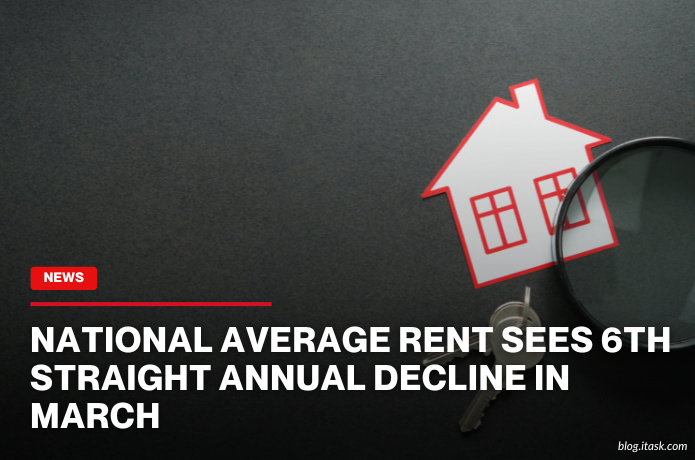National Average Rent Sees 6th Straight Annual Decline In March
National Average Rent Sees 6th Straight Annual Decline In March

Canada's rental market saw its sixth consecutive annual decline in March 2025, with the national average asking rent falling 2.8% year-over-year to $2,119, according to a report from Rentals.ca and Urbanation. This marks a continued trend of decreasing rents that began in late 2024, offering some relief to renters after years of rising costs.
The decline is attributed to several factors, including reduced immigration, fewer international students, and an increase in newly completed rental units. These elements have contributed to a higher supply of rental properties, easing the pressure on prices. Despite the annual decrease, rents did see a 1.5% month-over-month increase from February to March, the first such rise since September 2024, likely due to seasonal demand and improved affordability.
Regionally, Ontario and Quebec experienced the most significant annual rent decreases, with Ontario's average rent dropping 3.5% to $2,327 and Quebec's falling 2.5% to $1,949. British Columbia and Alberta saw smaller declines of 0.6% and 0.4%, respectively. In contrast, provinces like Saskatchewan, Manitoba, and Nova Scotia reported rent increases, with Saskatchewan leading at a 3.0% rise to $1,336.
Major cities also reflected this downward trend. Calgary experienced the largest annual decline among Canada's largest cities, with rents dropping 7.8% to $1,915, reaching a two-year low. Toronto's rents fell 6.9% to $2,589, the lowest in 32 months, while Vancouver saw a 5.7% decrease to $2,822, marking a 35-month low.
Despite recent declines, rents have risen significantly over the past five years. Nationally, average rents for purpose-built rentals have increased by 35.5% to $2,086. Condo apartment rents, however, have seen a modest 0.6% increase over the same period, now averaging $2,232. Notably, three-bedroom apartments have experienced the largest growth, with Alberta reporting a 5.6% increase to $2,169 in March.
The report suggests that while the recent declines offer some respite for renters, the long-term trend of rising rents underscores the ongoing challenges in Canada's housing market. Continued efforts to increase housing supply and address affordability are essential to ensure sustainable relief for renters nationwide.
